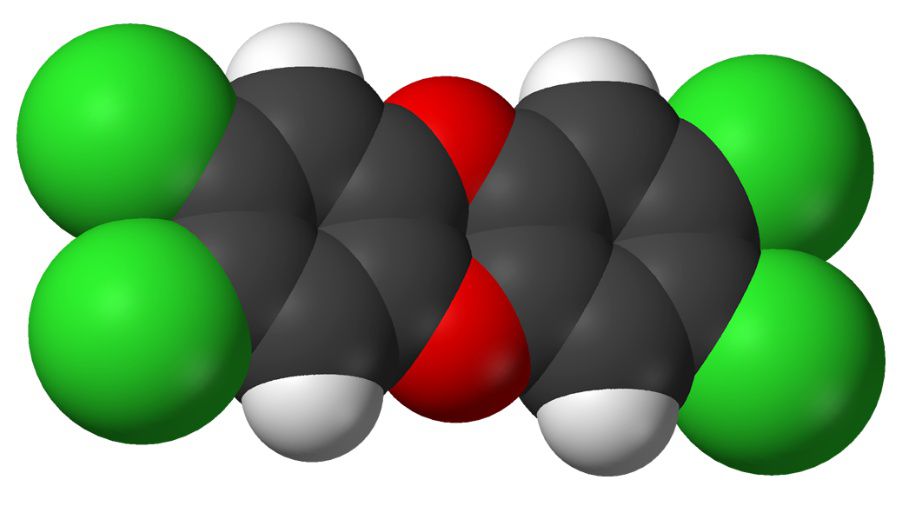-
 Pyroxenite
Pyroxenite
-
 Sponge
Sponge
-
 Virus
Virus
-
 Polarisation
Polarisation
-
 Sampling frequency
Sampling frequency
-
 Mannose
Mannose
-
 Merlot
Merlot
-
 Leprosy
Leprosy
-
 Ookinete
Ookinete
-
 Organic Pollution
Organic Pollution
-
 MSG
MSG
-
 Gamma globulin
Gamma globulin
-
 Spar
Spar
-
 Giant planet
Giant planet
-
 Anodontia
Anodontia
-
 Block cipher
Block cipher
-
 STED microscopy
STED microscopy
-
 Connex
Connex
-
 Tautomerism
Tautomerism
-
 Vanograph
Vanograph
-
 Arginine
Arginine
-
 Ketoacidosis
Ketoacidosis
-
 Antiepileptic
Antiepileptic
-
 Haemolytic anaemia
Haemolytic anaemia
-
 Ovovegetarian
Ovovegetarian
-
 Dark background microscope
Dark background microscope
-
 Azimuth
Azimuth
-
 American space shuttle
American space shuttle
-
 Melanoma
Melanoma
-
 Climate proxies
Climate proxies
Dioxin
The dioxins are a group of long-lasting organic chemicals whose actual effects on health are particularly difficult to identify.
Families of dioxins
The dioxins contain polychlorinated dibenzodioxins (PCDD) and polychlorinated dibenzofurans (PCDF). The most toxic of these appears, however, to be tetrachloro-p-dibenzodioxin (TCDD).
Origin of dioxins
These substances are present everywhere in the soil, sediments, and air. They are produced as an undesired byproduct of heat processes producing chlorine and organic substances. They can also be produced by the activity of volcanoes, which are by definition uncontrollable, and by forest fires, although the major sources of controllable emissions are waste incinerators. They are carried in the air and are deposited in fields and rivers and bind specifically to fats, meat, fish, eggs, and dairy products (including breast milk).
Effects of dioxins on human health
Dioxins accumulate in the body and can deregulate hormone systems, cause skin diseases, reduce defences and, ultimately, cause cancers.
 TCDD is the most dangerous dioxin. © Benjah-bmm27, Wikimedia, public domain
TCDD is the most dangerous dioxin. © Benjah-bmm27, Wikimedia, public domain
Latest
Fill out my online form.



